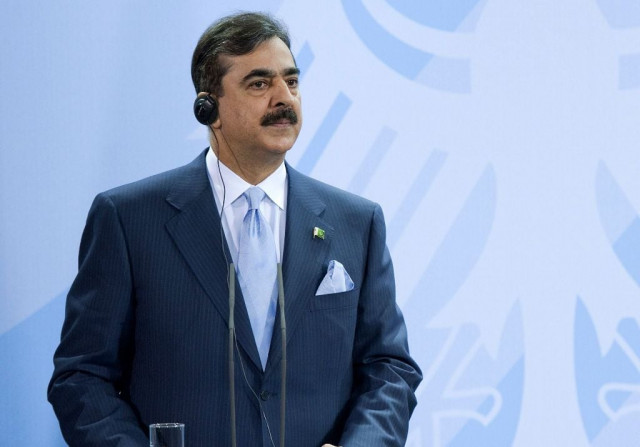Tough talk from the prime minister
Time has come for Mr Gilani to stand within the party camp and confront the coming street agitation in Punjab.

Tough talk from the prime minister
That was tough talk from Mr Gilani who has maintained a cordial relationship with the Sharifs even during times when hostile rhetoric flowed freely between their party and the PPP party chief, President Asif Ali Zardari. This indicates that time has come for Mr Gilani to stand within the party camp and confront the coming street agitation in Punjab. The chips are not evenly shared in the coming confrontation which so far had Mr Sharif leading a dharna in Islamabad among his own stalwarts and many rebels inside parliament who agree that the PPP should be sent home before its tenure is constitutionally over. The words used by Mr Sharif have been flecked with the sort of finality he did not employ before. It seems that he wants the government to quit on its own, failing which he will fall back on a Long March — and we know what happened to the PPP the last time the PML-N took part in a Long March, right before the restoration of the Supreme Court of Justice Iftikhar Mohammad Chaudhry.
Why is the toppling instinct so strong among Pakistani politicians again after the 1990s decade when the one big lesson learned by the PML-N was: don’t topple the PPP to benefit the unnamed ‘third party’ which finally ousts both the parties from the political arena and makes the country suffer economically. Many causes have been considered. The PML-N rank and file didn’t much like Nawaz Sharif’s new-found statesmanship under the 2006 Charter of Democracy. The TV anchors, smelling blood and good ratings, chided him for being ‘friendly opposition’. When he decided to come out of his idealism, his inflexibility brought him nothing but grief. And when this happened the same TV chided him on not being clever enough!
The reason being cited the most for the revived ‘toppling’ phase is the March 2012 Senate elections which are supposed to prepare the ground for the PPP to win the 2013 general election. The PPP is likely to be the biggest gainer in March 2012 by emerging as the single largest party in the Senate. Fifty seats are up for election, and given the numbers in the provincial assemblies — that are the electoral college for the Senate — the ruling party will be relishing the outcome. Three political parties — the Jamaat-i-Islami, the Pakhtunkhwa Milli Awami Party (PKMAP) and the Balochistan National Party Awami (BNP-A) — who did not take part in the 2008 general election will lose representation and their seats are quite likely to be picked up by the PPP.
The PML-N wants to rule next and can’t bear the prospect of being once again in the opposition. The Sharifs, bifurcated filially on how to deal with the situation at hand, have finally agreed that a winning PPP is simply not acceptable and will even embrace a dangerously ill-defined ‘bloody revolution’ to prevent the party from winning another election. The desperation is showing because President Zardari has both the parliamentary wild cards — the MQM and the PML-Q — firmly in his grasp. And the ‘third party’ is not yet convinced that Nawaz Sharif is tamed into joining his ‘connected’ colleagues and return to the grooves it moved in during the 1990s.
Of course, this is not to say that the situation that the country finds itself in is any better than in 2008. But at the very least, it would be good in that ordinary Pakistanis would have a chance to use the ballot box as an instrument of conveying their frustration and anger, rather than via a military intervention. That is the only way that democracy and its institutions can be strengthened in Pakistan. That, surely, is a worthy outcome in itself.
Published in The Express Tribune, October 18th, 2011.














COMMENTS
Comments are moderated and generally will be posted if they are on-topic and not abusive.
For more information, please see our Comments FAQ